Important Parts Of An HVAC System In Houston
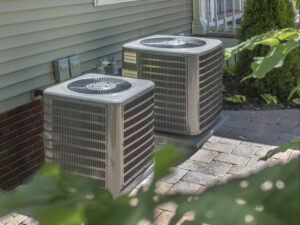 It is important to have an understanding of the parts of an HVAC system so that you can keep it well maintained, and also because if you know how it works it is easier to fix problems with it. With proper maintenance, an HVAC system will run efficiently for longer, keeping your Houston property comfortable all year round. Some of the most important components of an HVAC system are explored here – they are the blower motor, heat exchanger, condenser, evaporator, combustion chamber, and thermostat.
It is important to have an understanding of the parts of an HVAC system so that you can keep it well maintained, and also because if you know how it works it is easier to fix problems with it. With proper maintenance, an HVAC system will run efficiently for longer, keeping your Houston property comfortable all year round. Some of the most important components of an HVAC system are explored here – they are the blower motor, heat exchanger, condenser, evaporator, combustion chamber, and thermostat.
The Heat Exchanger
The heat exchanger is part of the HVAC housing that contains the furnace. It absorbs warmth and helps to heat up cool air if the thermostat activates the furnace, so the heat from combustion starts to rise. Furnaces will always have a heat exchanger, even if they are electric furnaces. The heat exchanger is usually stainless steel mixed with temperature-tolerant alloys that will not crack or become damaged with repeated heating and cooling. They have a duct to allow cool air to enter the exchanger, speeding the rate at which they work.
If your heat exchanger breaks, then this could lead to some serious issues, including a carbon monoxide leak. Carbon monoxide is a colorless, odorless, highly dangerous gas and prolonged exposure to it can be fatal. For this reason, it is vital that people get carbon monoxide detectors fitted in their living areas if they use gas or wood furnaces. Heating and air conditioning systems should be inspected annually.
The Blower Motor
Once the air in the heat exchanger reaches a specific temperature, the blower motor activates a fan that will force the warm air into the ducts and through the ducts into the rooms that the air conditioning supplies. Combustion will end before the blower motor turns off, allowing the air in the heat exchanger to reach the same temperature as the rooms in your home. The motor will wait for the next heating cycle to begin before it reactivates.
Variable-speed blower motors can run at different speeds to control the flow of air around the house. They can monitor your HVAC system and compensate for a lot of potential issues. They are also a nice choice because they spin up slowly, which means they are quieter, and they work well for reducing humidity as well as for transporting air. Often, a smaller property will reach the desired temperature before the motor reaches full speed, so a variable speed motor can be more energy-efficient.
The Combustion Chamber
For proper, safe combustion, sufficient oxygen must be present. The furnace will add air to fuel in the burner or combustion chamber. The heating cycle will start when the air and gas mixture are present in the combustion chamber, and a glow stick or pilot light will ignite the mixture, starting a controlled fire that will continue to burn as more gas and air is sent into the chamber.
Glow sticks serve as an ignition system. The pilot light is a small tube that releases gas for fuel for the flame. Glow sticks can light automatically, but if the pilot light goes out then this will need to be relit manually. Most modern furnaces do not use a pilot light, since relying on a pilot light means that more gas is burned, and also that there is an increased risk of carbon monoxide being released from the unit.
The Condenser Coil/Compressor Unit
Condenser coils are a part of the heat pump or HVAC system that is installed outside of the property in most cases. The condenser coil cools the property by releasing hot air to the outside. The compressor or condenser is so-called because it compresses and condenses refrigerant from a gas into a liquid, and as the refrigerant is condensed it becomes colder. A fan blows air over the compressor, and this helps to cool the refrigerant and disperse the heat more quickly. The HVAC system will then send the refrigerant, in liquid form, through a copper or aluminum tube to the evaporator coil.
To prevent issues with the HVAC system it is important to keep the condenser clean. If grass clippings, dirt or debris are allowed to collect on it then it may cause the condenser to malfunction. It should be maintained annually, too. Turn off the unit and rinse off the condenser with a garden hose. Another good idea would be to use an awning to provide shade for the unit, leaving a few feet of space on each side so that airflow is not impeded.
The Evaporator Coil
Inside the air handler, there is an evaporator coil. This is a part of the unit that brings refrigerant to a series of nozzles or expansion valves. These valves spray liquid refrigerant, allowing it to evaporate into a gas more quickly. As the liquid evaporates, it absorbs heat, reducing the temperature of the air around the pipes. The HVAC system’s fan will take in warm air from your home, pump it through return ducts and pass it over the evaporator coil so that the air is cooled.
The cool air is then distributed through the ductwork and into the rooms of your home. After that, the system will send the refrigerant back to the condenser coil, so that it can start the cooling cycle once more. When warm air touches the evaporator coil it will condense. This helps to keep the humidity in the house low and makes the home feel cooler, which can help to reduce energy expenditure in the summer.
Heat pumps are similar to air conditioners and work in much the same way. The heat transfer process can be reversed during the winter, bringing heat from outdoor air into the house and pumping out the cold air in the home. Using the heater can dry out the air and irritate your skin, nose, and eyes. You can make use of a humidifier to make the property more comfortable and to reduce the dryness.
The Thermostat
Thermostats are temperature sensors that can be used to determine when the air conditioner or heater should be turned off or on. They can give users fine control over the temperature in the property. Thermostats can be connected to the system via wires and can be used either in one central location or one per room. They are best placed near the center of the house, away from drafts or areas that get particularly stuffy. Some systems give you ‘zone’ control so that you can dictate which areas should be warmed or cooled, reducing the overall cost of running the system.
Some models also allow you to set a schedule, so that the temperature will be kept at one level during the day and another in the evenings, or to have different temperatures on different days of the week, depending on when people are likely to be at home.
Call or contact us today for more information. Visit our blog for more related articles.
The post Knowing The Parts Of A Houston HVAC System & Their Natural Purpose appeared first on AC Man Houston - HVAC & Air Conditioning Repair.
from AC Man Houston – HVAC & Air Conditioning Repair https://ift.tt/38ubpzS
via IFTTT
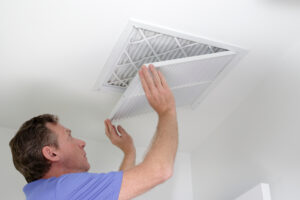 The majority of homeowners’ insurance policies will only cover the damages that your AC unit has sustained due to a “covered peril” which will be listed in the policy. Depending on what type of
The majority of homeowners’ insurance policies will only cover the damages that your AC unit has sustained due to a “covered peril” which will be listed in the policy. Depending on what type of 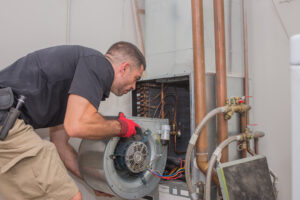 As the population continues to grow, the demand for qualified HVAC specialists is on the rise. Every year, companies receive an increasing number of calls for service visits. A large percentage of the value of your home is made up of your HVAC system, which includes any heating, air-conditioning, and ventilation equipment that you own. Working with a qualified HVAC technician is essential anytime you are having your system serviced or repaired. Keeping your
As the population continues to grow, the demand for qualified HVAC specialists is on the rise. Every year, companies receive an increasing number of calls for service visits. A large percentage of the value of your home is made up of your HVAC system, which includes any heating, air-conditioning, and ventilation equipment that you own. Working with a qualified HVAC technician is essential anytime you are having your system serviced or repaired. Keeping your 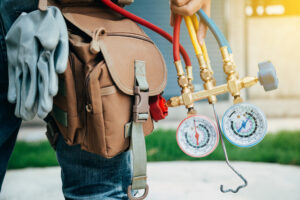 A failing capacitor is a very common culprit behind air conditioner malfunctions. Fortunately, if capacitor problems are caught in time, then a
A failing capacitor is a very common culprit behind air conditioner malfunctions. Fortunately, if capacitor problems are caught in time, then a 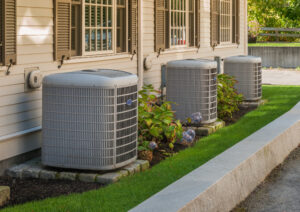 Examining the thermostat: Calibrate the thermostat, and also make sure that it is correctly installed, and located away from any heat sources such as light bulbs or household appliances that give off heat.
Examining the thermostat: Calibrate the thermostat, and also make sure that it is correctly installed, and located away from any heat sources such as light bulbs or household appliances that give off heat.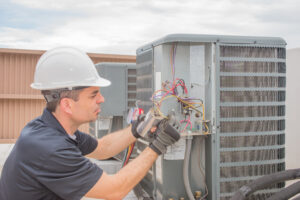 When you decide to contact an HVAC technician, it involves a lot more than just choosing a well-known company or brand in order to get this job done. It is also important that you have chosen a company that has technicians onboard who will show respect to your home and to you, while they go about completing their tasks. Below is a list of the 10 qualities that all HVAC technicians should possess.
When you decide to contact an HVAC technician, it involves a lot more than just choosing a well-known company or brand in order to get this job done. It is also important that you have chosen a company that has technicians onboard who will show respect to your home and to you, while they go about completing their tasks. Below is a list of the 10 qualities that all HVAC technicians should possess.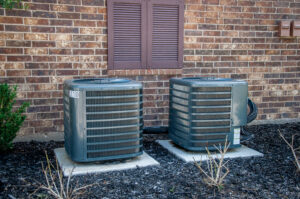 They Should Be Experienced
They Should Be Experienced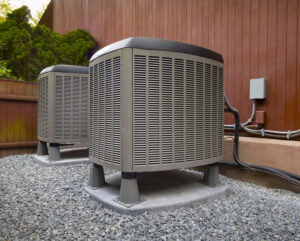 Have you been thoroughly maintaining your home’s HVAC system? If you’re unaware or uncertain that preventive maintenance is essential for your HVAC systems, then you’ll require to read this. A majority of technicians wouldn’t want you to know that your HVAC systems can service you forever if maintained properly. Just as a vehicle does, these comfort controlling devices require attention and care regularly. Your HVAC system should also have scheduled services carried out by a professional HVAC technician.
Have you been thoroughly maintaining your home’s HVAC system? If you’re unaware or uncertain that preventive maintenance is essential for your HVAC systems, then you’ll require to read this. A majority of technicians wouldn’t want you to know that your HVAC systems can service you forever if maintained properly. Just as a vehicle does, these comfort controlling devices require attention and care regularly. Your HVAC system should also have scheduled services carried out by a professional HVAC technician.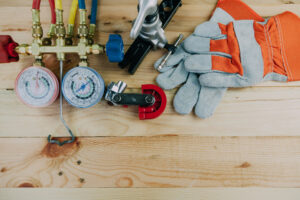 1. Scheduled Maintenance
1. Scheduled Maintenance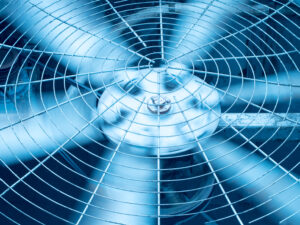 When your HVAC system does not have a filter, the condensate drain will not be able to work correctly. This means that moisture will not be removed correctly from the unit. When heat is removed from the air, condensation will form on the refrigerant tubing and this will drip into the drain pan. The pan will then drain outside the unit which helps you dehumidify your home as well. The filter on your HVAC system will stop debris from clogging your condensate drain and causing water
When your HVAC system does not have a filter, the condensate drain will not be able to work correctly. This means that moisture will not be removed correctly from the unit. When heat is removed from the air, condensation will form on the refrigerant tubing and this will drip into the drain pan. The pan will then drain outside the unit which helps you dehumidify your home as well. The filter on your HVAC system will stop debris from clogging your condensate drain and causing water 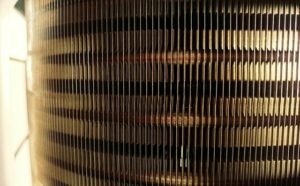 The price of
The price of